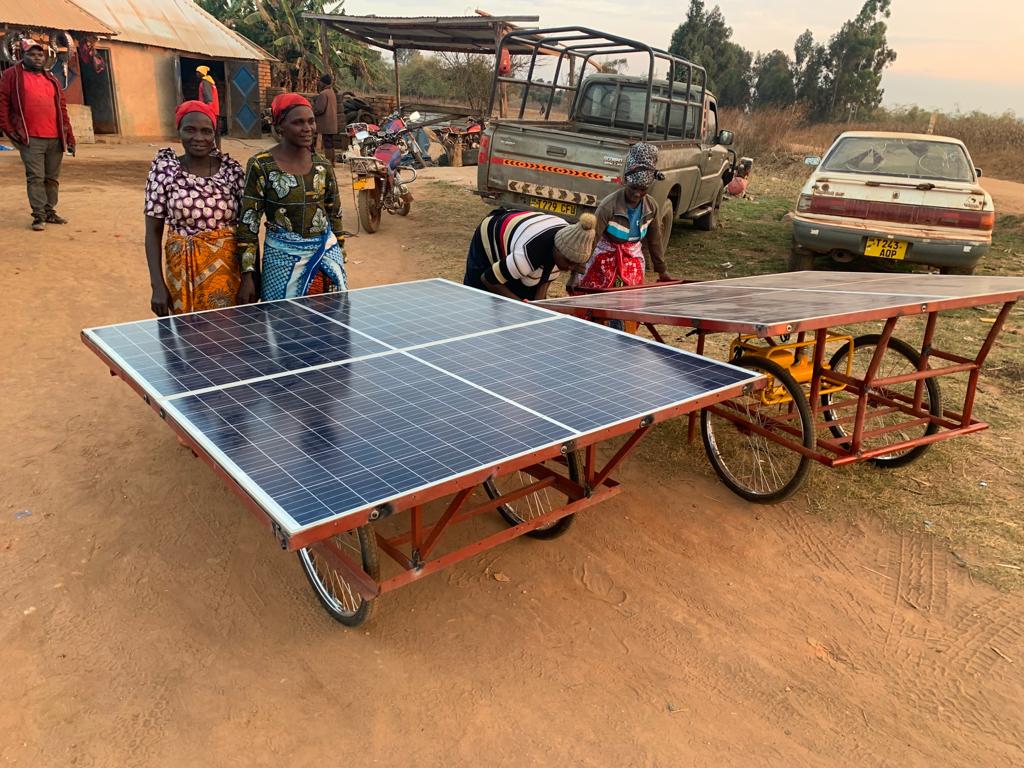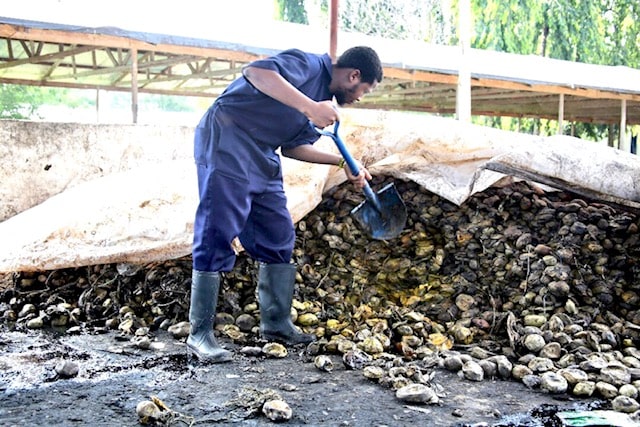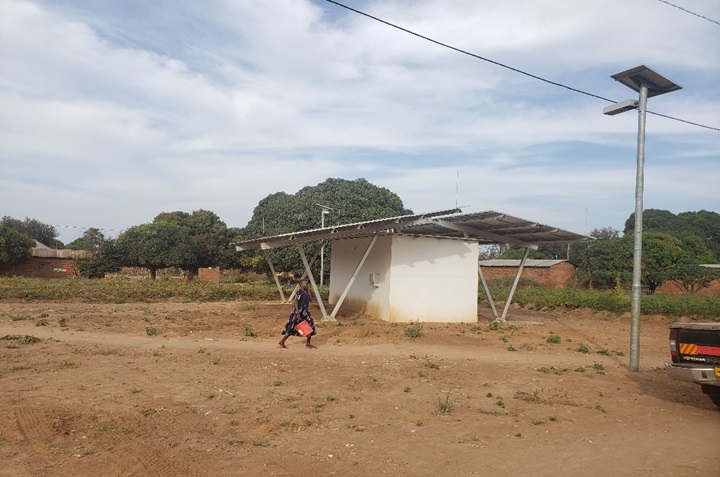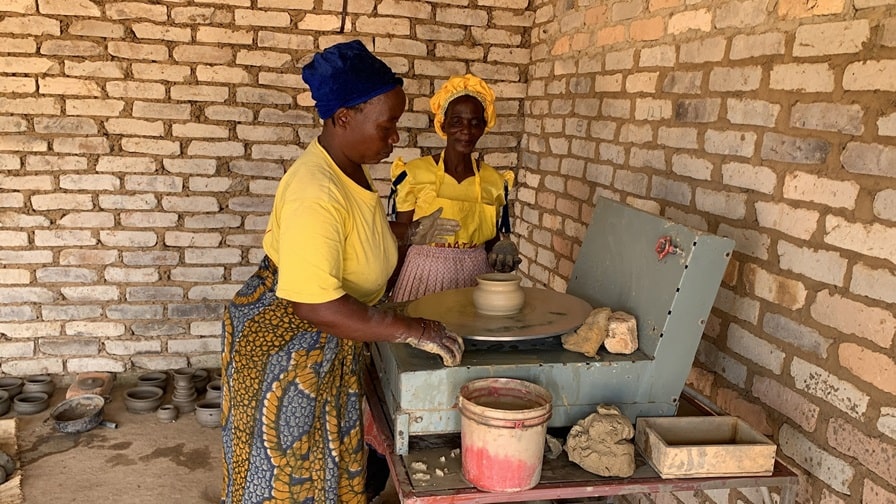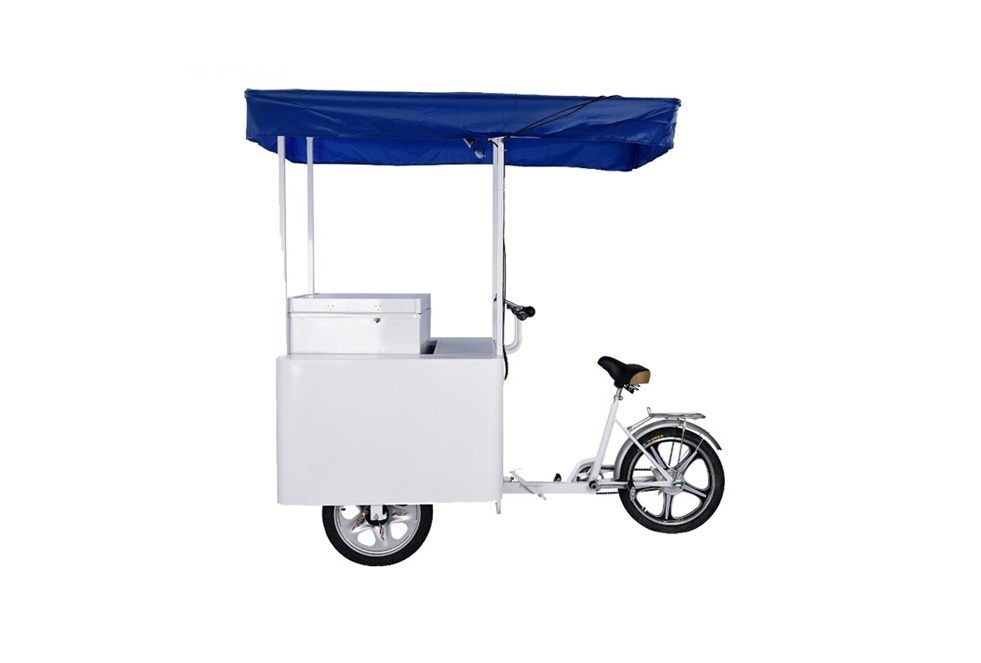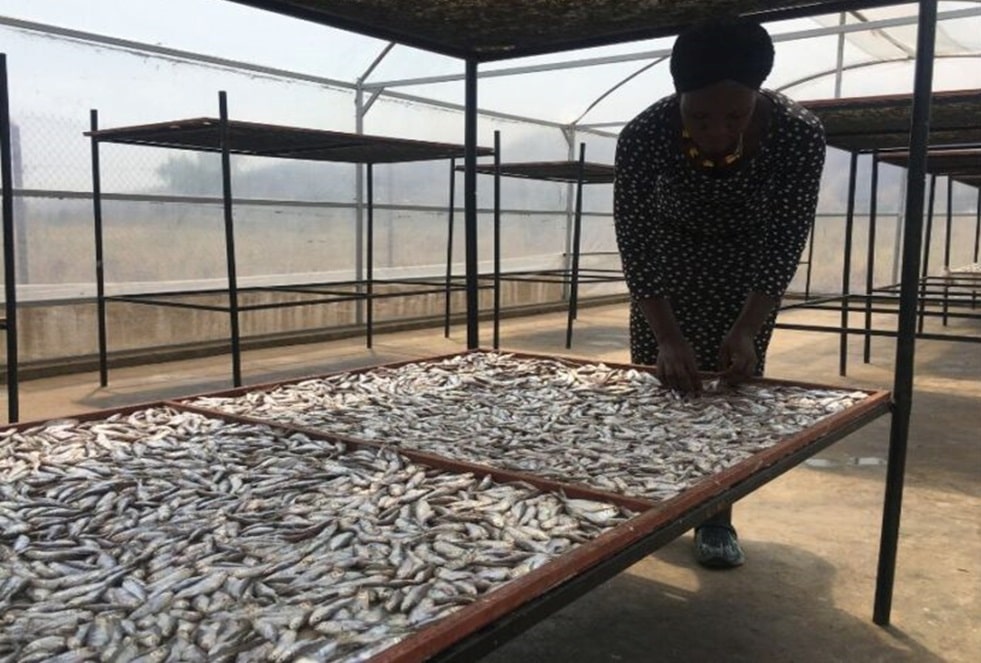Along Jiandae bus stop in Tabata Kimanga in the commercial capital, Dar es Salaam, a young food vendor is opening up his plain cake (chapati) business.
Musa Ally has been doing this job for two years now, opening his food vending station at around 5pm to target more people who are rushing back home from work at 7pm.
“I usually make not less than 200 chapati a day with the support of my colleagues. We always prepare our plain cakes early to avoid the impact of darkness on our business…we want to minimize the use of the torch because it runs out of charge fast,” Mussa says.
Mussa says that he gets a profit of not less than 50,000 Tanzanian Shillings a day which helps him to run his life by solving various needs such as food, housing and the business has enabled him to buy a motorcycle.
Mussa says when the darkness begins, they turn on their rechargeable torch which also runs out of light quickly forcing them to use the phones to light their food station, reducing the potential of growing their business.
The situation is the same to other street food vendors in Dar es Salaam neighborhoods and other regions in Tanzania
In Kivukoni, Kigamboni district most vendors are selling seafood on their tables covered with umbrellas. Majority of vendors in this area use kerosine lamps, candles or torches to light their businesses. Very few here use solar lanterns or electricity sourced informally from neighboring shops or houses.
In Bunju A bus station, a way to Bagamoyo district, some women selling fish and other food vendors are selling their products by using paraffins or their mobile phones torches.
Gladness Sebastian, a vegetable vendor in Buguruni Sheli in Dar es Salaam, has been losing money due to frequent fraud by some unscrupulous customers at night. The buyers take advantage of the dim light from the candle she uses to lighten her business and pay her torn notes.
“Sometimes the notes confuse me, I find myself giving the customers a larger amount of change than what he deserves,” says Gladness.
The sources of lighting they are using are reported to be harmful to their health and dangerous to their business if they are not careful because they are likely to cause fire and burn their assets.
These vendors, however, do not like the situation they are in.
Mussa, for example, wants to extend business hours like others who use electricity to run their businesses because his customers always need his chapati even at the time he closes.
Despite Mussa Saving 50 thousand shilling everyday as a profit from his business, lacking basic knowledge about solar made him hesitate to buy, he says that apart from the light that his neighbors who use solar benefits from, they have been changing their panels frequently claiming that they sometimes don’t work well and sometimes are completely ineffective and force them buy new ones.
“If I can get other sources of lighting like electricity or solar panels like others, I believe it will help me to extend my business hours and increase my income, also because of enough light it will help with the safety issues at my workplace,” says Mussa.
While other food vendors are now looking for more cleaner and cost-effective lighting services for their businesses, some have already taken steps.
Mariam Idd, famous as Damamu, was using paraffin lamps to light her fish vending table before. Due to its challenges and effects including regular switching off due to wind, she decided to buy a solar system panel that was installed on the rooftop of her tent that is now lighting her business.
Mariam says since she installed a solar system the safety of her business at night has improved and she is happier now than before.
Mariam says she has been in the business for more than four years now. At first, she used a kerosine lamp to get light at night when she was selling products at Kivukoni but she was incurring a big cost buying kerosene to fill the lamps.
She used to spend 1,500 Tanzania shilling every day and when she ran out of it, her phone torch was the only light she had.
“Buying kerosene everyday gave me a headache, it was a burden because I had to set a budget of one thousand and five hundred shillings every day but I had to make a decision to incur a big initial cost of buying the solar system to solve the burden,” says Mariam.
According to the Energy Access and Use Situation Survey II in Tanzania Mainland 2019/20, https://dc.sourceafrica.net/documents/120767-ENERGY-ACCESS-and-USE-SITUATION-SURVEY-in.html/, there is an increase of modern sources of lighting coming from electricity and solar systems.
Results show that 36.3 percent of households are using electricity as a main source of energy for lighting, followed by solar 30.4 percent and rechargeable battery lamp/torch 23.0 percent.
Traditional sources of energy for lighting, according to the report, have decreased three folds from 22.3 percent in 2016/17 to 6.4 percent in 2019/20. Other energy sources used for lighting comprise 4 percent of households meaning in every 100 households, only four uses other sources of lighting.
Sisty Basil, the Executive Director of Elico Foundation, whose organization is dedicated at establishing people-focused energy systems that are sustainable, affordable and resilient said it is important for the stakeholders of the renewable energy subsector to continue providing education in order to increase the awareness and understanding of the potential and benefits of using solar energy.
“It is important for financial institutions and companies that distribute these technologies to enable users to own them while paying little amounts in installments because sometimes businessmen fail to pay all the costs in one lump sum,” said Basil.
However, ELICO continues its efforts to educate entrepreneurs while providing them with solar powered systems and allowing them to pay little by little through its ELICO’s Sandra Smith Revolving Fund.
Concurrently, the organization has plans to install solar powered street lights in the markets along the main road to allow traders to work at night and improve security.
“For this year alone, the organization will install the lights in three roadside markets located along the Morogoro-Dodoma and Morogoro-Iringa highways,” Basil added.
In addition, the organization in collaboration with private sector stakeholders are continuing efforts to develop solar powered generators so that they can be used in the night markets in Dar es Salaam.

